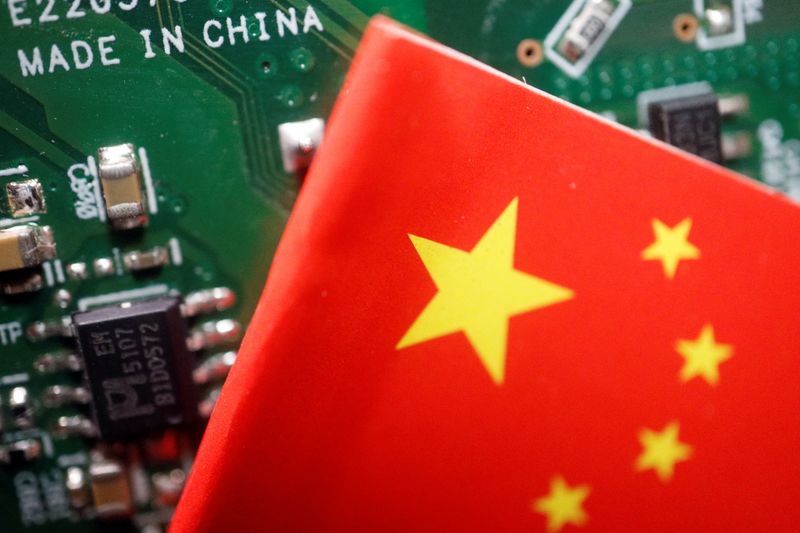The Biden administration recently initiated a trade investigation under Section 301 regarding “legacy” semiconductors produced in China. This inquiry threatens to impose additional U.S. tariffs on chips critical to various everyday products, including automobiles, washing machines, and telecommunications equipment. The probe comes just weeks before President-elect Trump assumes office, with the expectation that it will be passed along to his administration for completion. The new scrutiny may allow Trump to implement the substantial tariffs he proposed earlier, potentially reaching 60% on some Chinese imports. The Biden administration’s prior measures had already established a 50% tariff on Chinese semiconductors effective January 1, further tightening export restrictions on advanced technology components.
The U.S. Trade Representative’s office spearheading the investigation aims to protect domestic chip manufacturers from what officials describe as China’s aggressive state-driven approach to dominating the global semiconductor market. The Trade Representative, Katherine Tai, highlighted evidence of a concentrated effort by Beijing to undermine market-oriented competition by flooding the market with heavily subsidized chips. This competitive edge allows Chinese firms to underprice their counterparts, somewhat echoing previous practices China exhibited in sectors like steel, aluminum, solar energy, and more recently electric vehicles.
Legacy semiconductors, which this investigation targets, utilize older manufacturing processes and are used in a myriad of essential consumer products. Notably, these chips do not include advanced models designed for artificial intelligence applications or complex microprocessors. Public engagement in the investigation is set to begin with comments accepted starting January 6, with a public hearing scheduled for March 11-12. This timeline raises questions about the confirmation of Trump’s proposed USTR leader, Jamieson Greer, which could take place before the probe officially begins.
Tracing its origins back to tariffs imposed by Trump on approximately $370 billion of Chinese goods during 2018-2019, the investigation taps into previous tensions that sparked a nearly three-year trade war between the two nations. If the new administration under Trump follows through with the probe, findings must be released within a year of its initiation. Additionally, the investigation will further scrutinize the impact of Chinese legacy chip imports on downstream goods in key industries like defense, automotive, and medical equipment. It also specifically targets China’s silicon carbide production linked to semiconductor manufacturing.
Commerce Secretary Gina Raimondo revealed troubling statistics indicating that nearly two-thirds of U.S. products incorporating semiconductors contain Chinese legacy chips, with half of U.S. businesses unaware of their chips’ origins. This lack of clarity is particularly concerning in sensitive sectors like defense. Amid ongoing disruptions in semiconductor supplies resulting from the COVID-19 pandemic, which adversely affected the production of various critical goods, the U.S. has taken drastic steps to bolster its own semiconductor industry with over $52 billion designated for research, production, and workforce development.
Despite stark partisan differences in many areas, ongoing trade relations with China have been a notable point of continuity between the Biden and Trump administrations. Biden has retained the existing tariffs imposed during Trump’s presidency while further escalating trade conflicts through additional restrictions, including higher tariffs on Chinese-made electric vehicles. As both administrations grapple with the implications of China’s growing semiconductor capacity, these trade measures represent a concerted effort to secure U.S. interests in critical technologies. The dynamics of this trade relationship remain pivotal to the U.S. economic landscape.

